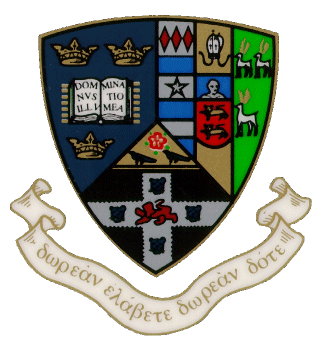POSTCOLONIAL POEM: KAMAL KUMAR TANTI
Kamal Kumar Tanti is an Assamese poet. His first collection of poetry, Marangburu Amar Pitaa (Our Father Marangburu) was published in July 2007. Another collection of prose, Nimnaborgo Somaaj Oitijya (Subaltern Society Legacy) – a compilation of all his articles on post-colonial theory and subaltern historiography, with specific reference to colonial history and culture of Assam – was published in September 2007. He is also a regular writer in Assamese dailies and is the author of a regular column Mumbai Parikrama in Asomiya Khabar, an Assamese daily. His short stories have also been well received. Recently, his poem "Travelogue" is featured in Muse India's "Focus: Influence of Insurgency on Assamese Literature" (Issue: July-August, 2008). Tanti is currently a research scholar in Astrophysics and Astronomy at the Tata Institute of Fundamental Research (TIFR), Mumbai, and is involved with the Infrared Astronomy Group of TIFR.
Next Poem:.......................................................................................................................................
Back to Poetry Index
|
Gust of the Phagun wind[1]
swept away dust of the road, old waste of the fields
But there remained beside the ancient pond
Seated our Old Man[2]
A windful of memory held in his restless thoughts
We too were ruminating, studying
… Of lives perished long ago
… Of time that perished long ago.
So we asked our Old Man
What is life: … 'Momentary water slipping off yam leaf'
And what is history: … 'Tales of rich and famous
… Of people and country bought and sold'
… 'Of minds and thoughts no longer one's own
… Of wasted shorter routes to being bought and sold'.
We asked him again
Who are we?
'Nothing and nothing yam leaves, crushed beneath their white feet'
'Muddy waters under stomping hoofs, left behind in the path of riders'
'Startled souls in fear, at the very ringing of a gunshot'
Then who are you?
We asked again our Old Man
'I am History: of two lost centuries
Of centuries lost in the time of the colonial
Of centuries lost in the time of the colonized'
[1] In the original poem (in Assamese language), it is the wind that blows in the month of Phagun. Phagun is a windy month (February-March) in Assam.
[2] In the original poem the Old Man is called Kachari Burha (old man from the Kachari tribe/community)--used to convey a folk sense of old man.
Note on the translator--
This poem was translated from the original in Assamese by MANJEET BARUAH. Baruah is a researcher, writer and translator; he is currently a faculty at the Women's Studies & Development Center, University of Delhi and pursuing his PhD. on consciousness (of identity), textual structure and meaning in Assamese fiction. His research interest includes cultural history, social geography and gender. He has two published books of translation. He has written two novels and a collection of short stories.
Next Poem: ......................................................................................................................................Back
to Poetry Index


 This
web journal is sponsored by The Caspersen School of graduate studies, Drew
University
This
web journal is sponsored by The Caspersen School of graduate studies, Drew
University